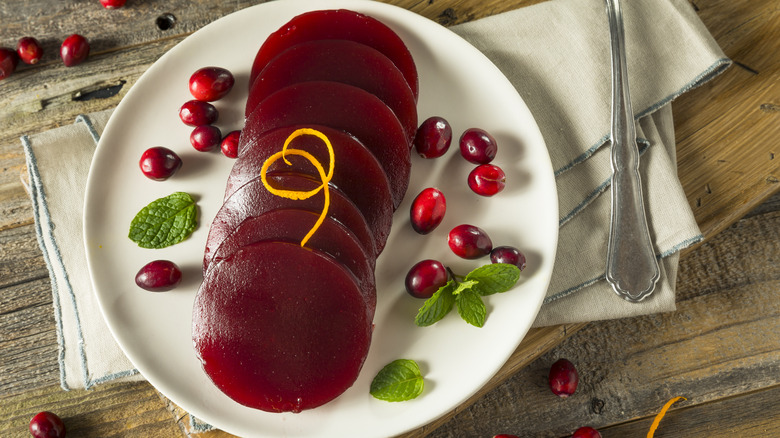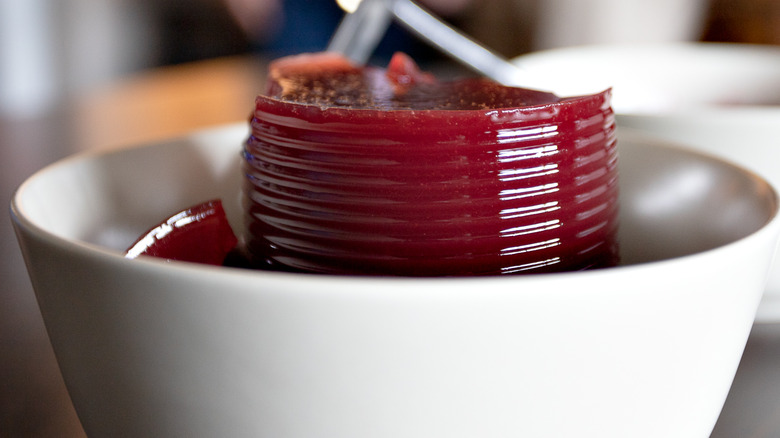How Canned Cranberry Sauce Became A Thanksgiving Staple
Let's face it, a Thanksgiving table without the tangy component that is cranberry sauce is an unfinished feast. Whether you slice it from the can and fan it on a plate or make it yourself into a chunky relish consistency, it plays a crucial part in the whole sha-bang. But why?
According to Kinfolk, a dish needs salt, fat, acid, and heat in order for your plate to feel balanced and completely satisfying. Salt enhances flavor, fat amplifies flavor and texture, acid brightens and balances flavor, and heat determines the ultimate texture of the food you're cooking.
It's safe to say that cranberry sauce acts as the acid, which is why adding it to your fork full of gravy-smothered turkey and stuffing really tops it off for the perfect bite. It's quite similar to consuming mint jelly with lamb to counteract the gaminess, but who really thought of such a genius addition to the traditional meal?
Native Americans may have eaten the dish on the very first Thanksgiving
Food & Wine states that cranberries originated in North America, being very abundant in Native American diets for centuries. As Insider notes, it is quite likely that on the very first Thanksgiving Day in 1621, Native Americans enjoyed an unsweetened version of the dish we know today. However, the first dated mention of serving this sauce with turkey specifically was by Amelia Simmons in her 1796 cookbook, "American Cookery," where she suggests that turkey pairs well with sweetened cranberry sauce and boiled onions.
Once cranberry sauce was sold in a can, it was much more convenient, as it's one less thing to cook, dirty up a dish, or take up oven space.
According to Smithsonian Magazine, Marcus L. Urann was the original inventor of canned cranberry sauce. A lawyer up until the 20th century, Urann quit his job, bought a cranberry bog, set up cooking facilities and a packing house in Hanson, Massachusetts, and began his business of canning berries to extend their shelf life. In an interview with Spokane Daily Chronicle, he said, "I felt I could do something for New England."

